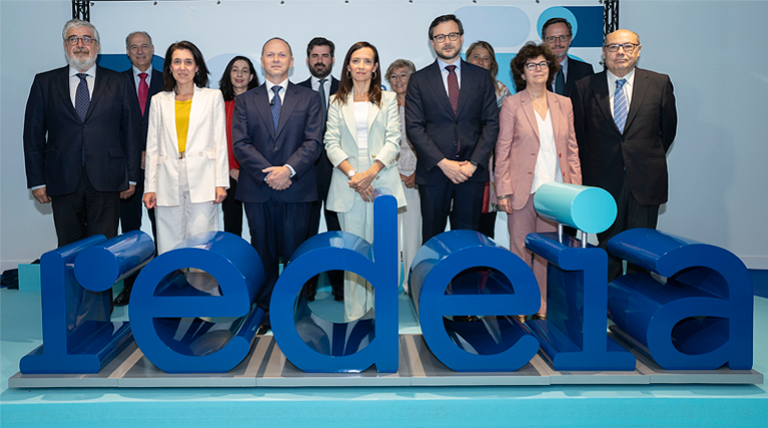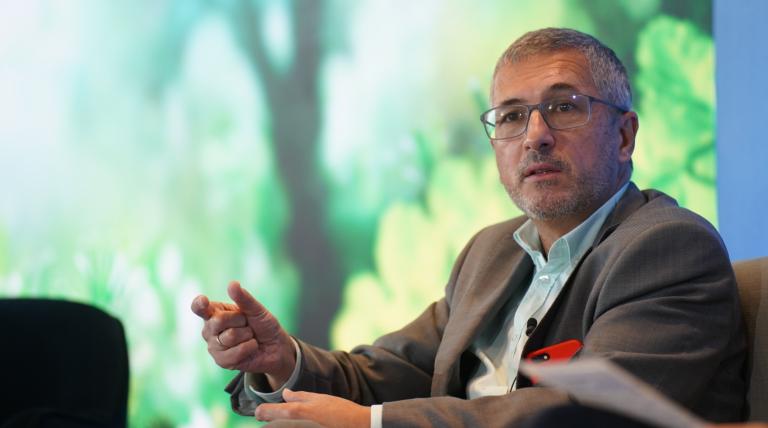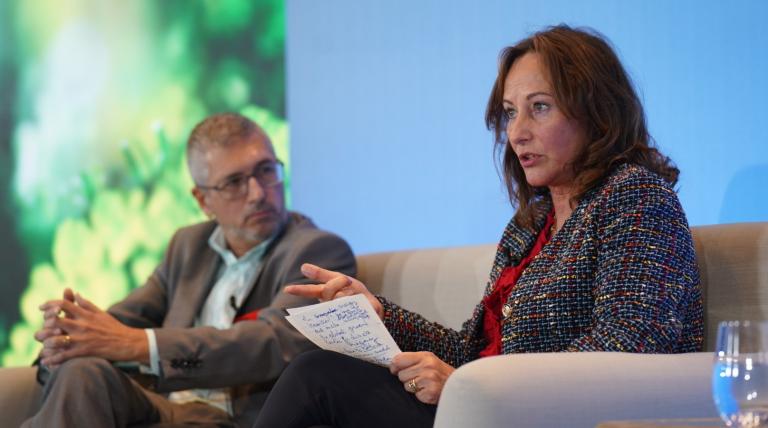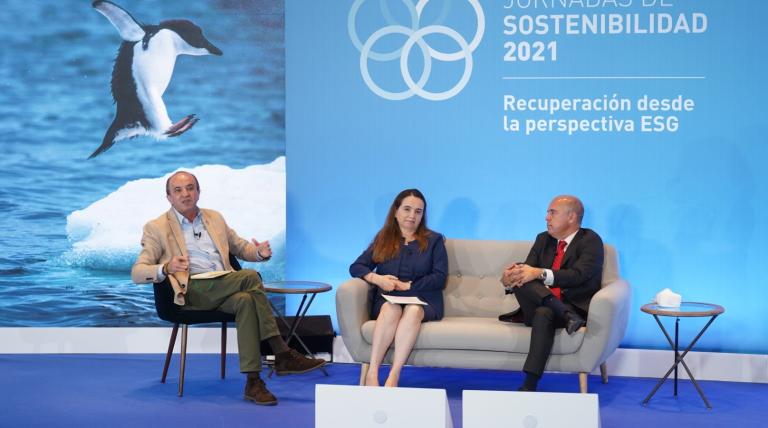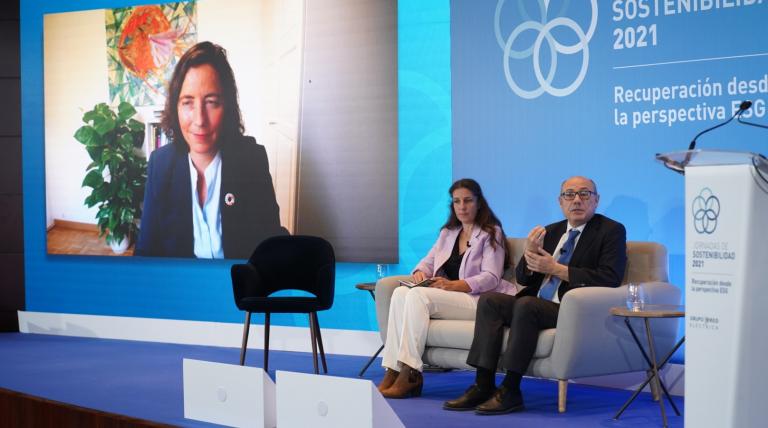We are a global operator of essential infrastructure
- The Secretary of State for the Environment took part in the 2021 Sustainability Conference today, where he stated that unless the whole of society embraced change, this “would be impossible or would cost too much”
- “Today’s conflicts and others that will emerge in the coming years will be due to inequality in development”, said Ségolène Royal, former minister for Ecological Transition in France
The commitment to environmental sustainability, and with it the fight against climate change, is an opportunity for companies to increase their positive impact on society, on the understanding that profits and social benefits are not incompatible, but are actually more closely linked than ever. This is one of the main conclusions reached by the Spanish and international experts brought together in the Sustainability Conference 2021, organized by the Red Eléctrica Group in Madrid.
In the session, Hugo Morán, Secretary of State for the Environment, affirmed that “there will be no ecological transition without a cultural transition. We need to reconsider our way of looking at all aspects of our lives: as workers, as consumers and as part of society as a whole. If we cannot convince the majority of society to accept the need to make this change, it will be impossible or have a price tag that we cannot pay”.
Morán conversed with Ségolène Royal, ex-minister for the Ecological Transition in France, who spoke about the forthcoming COP26. “The time for talking is over. It is time to act, with a focus on countries, regions, companies and people, with full transparency. This is the only way we will be able to slow down climate crisis”. In her opinion, “the worst conflicts today, and those still to come, related to the lack of resources or food, with significant loss of human rights, are due to unequal development. Changing the model to reduce greenhouse gas emissions and stopping the excessive use of natural resources is an obligation, but also an opportunity”.
Today’s sessions focused on the environment, bringing more than 30 experts together since yesterday for an urgent debate in which all companies break down their strategies under environmental, social and governance (ESG) criteria to encourage the transition towards a sustainable development model that is fair and inclusive.
The situation of the oceans and seas was one of today’s topics, with the presentation of Red Eléctrica’s Marine Forest project, and the participation of Alexandra Cousteau, founder of Oceans 2050. Cousteau reminded us that “we have already lost 50% of life in our oceans, but we can still restore the abundance of our seas”. The expert believes that “oceans are a source of food, leisure, inspiration and also employment and income for coastal communities. By exploring and learning about it, we can protect significant marine habitats and rebuild fish stocks, to ensure that future generations will inherit thriving oceans that can support their coastal communities”:
For her part, Grethel Aguilar, assistant director general of the International Union for Conservation of Nature (IUCN), affirmed that “a special effort has to be made to include marginal groups, especially women, young people, local communities and indigenous people in the investments that put nature-based solutions into practice. This is how we can ensure a real long-lasting economic recovery that contributes to human welfare and reduces inequality and the pressure on the planet”.
Similarly, Eva Saldaña, director of Greenpeace España, said that "we have an urgent opportunity to create a fair, green recovery which puts civil society first, reinventing our systems and transforming the economy so that it supports the life and health of the planet".
María Mendiluce, CEO of the global non-profit We Mean Business Coalition, commented that “we have to do everything we can for climate action, working together with companies, governments and civil society. We find ourselves at a critical moment, and there is no time to lose; we must take action now, because our chances to stabilise global warming are quickly fading away. That is why the G20 and COP26 which are held this year are decisive for the future of humanity”.
Ricardo García, board member of the Red Eléctrica Group, warned of the need for urgent action, because “the inertia of the climate system is so great that we will not see the results of the efforts we make today before 2050”. In this sense, he affirmed that Red Eléctrica is matching the changes in the climate system with a transformation of the electrical system that will enable the massive integration of renewable energies and the electrification of the economy.
Biodiversity, the recovery of the oceans, the climate emergency and the path towards green prosperity were at the centre of today’s debates and round tables, which also enjoyed the participation of Leire Pajín, president of REDS; Jaime de Jaráiz, president and CEO of LG Electronics Iberia; José Luis Gallego, environmental communicator; and Gonzalo Muñoz, High Level Climate Action Champion COP 25.
The 2021 Sustainability Conference is supported by the Global Pact of the United Nations Spain, Forética and Women Action Sustainability.













